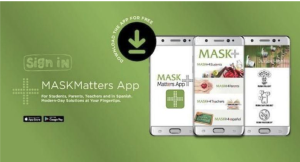
Protect Your Digital Footprint
January 17, 2023
The Boundary Shift
January 21, 2023Helping your preschool child learn how to tolerate feelings is critical for a number of reasons. Their vocabulary is increasing at a rapid rate; their brains are growing, thereby allowing them to engage in more complex reasoning; and they’re expressing their emotions verbally, physically and through temper tantrums.
Helping them start to identify feelings, reminding them that these feelings will pass, and refraining from punishing them for expressing themselves are a good way to start teaching coping skills for preschool-aged kids.
Good parenting starts with self-care. Make sure you model good coping skills for your child. Identify your own emotions, identify your triggers (especially your child’s behaviors that trigger you), and engage in active self-care so that you’re not bursting at the seams when it comes time to teach your child how to cope.
Younger kids are very good at learning diaphragmatic breathing, so start early with this coping skill. For identifying triggers, help your child describe what makes them mad and then create a “mad list” so you both know what triggers an emotional tantrum.
Remember, the first step to good coping skills is tolerating emotions, so your child needs to learn to tolerate the intense emotions they are experiencing. Another tip: Be forgiving of parents dealing with a child having a meltdown. Parenting is hard enough, let’s not make it harder for each other by judging.
Child reading list
“I Can Handle It (Mindful Mantras Book 1)” by Laurie Wright
“I Can Do That: A Book on Self-Regulation” by Kayla J. W. Marnach
“Breathe Like a Bear: 30 Mindful Moments for Kids to Feel Calm and Focused Anytime, Anywhere” by Kira Willey
Parent reading list
“Little Kids, Big Worries: Stress-Busting Tips for Early Childhood Classrooms” by Alice Honig
“Help Kids Cope with Stress and Trauma” by Caron Goode, Thomas Goode, and David Russell
“Parenting Your Stressed Child: 10 Mindfulness-Based Stress Reduction Practices to Help Your Child Manage Stress and Build Essential Life Skills” by Michelle Bailey
Signs & Behaviors
Able to identify their feelings with age-appropriate words like mad, sad, happy, scared and surprised
Able to use deep breathing with your help; a good way to teach them is by using bubbles
Shows signs of self-regulating; they will learn how to calm down on their own
Able to identify situations in which they may have intense feelings, such as:
- Transitions
- Surprises
- Vacations
- Changes in routine
- Not getting their way
- Hunger
- Fatigue
- Scary situations
What you can do
Model emotional regulation through:
Self-care
Feelings identification
Trigger identification
Emotional tolerance
Teach emotional tolerance by helping them understand that feelings are temporary and that feelings pass
Teach them how to identify the triggers that make them feel intense emotions
Avoid punishing them for temper tantrums; give them a “time in” when you help them identify their feelings
Conversation starters
“What are the things that happen that make you have really big feelings?”
“When you have really big feelings, remember to breathe really slow like you’re making the biggest bubble ever.”
“Which feelings are hard for you?”
MASK the Parenting Magazine a quarterly publication providing solutions for Today’s Families.
The parenting manual offering solutions to the modern-day challenges families face. From Pre-K
through College stay up to date on the modern day issues families face.
Are you up to date on the issues your child is facing?
MASK Mothers Awareness on School-age Kids offers parenting solutions for today’s families. MASK tackles important topics – from drugs and alcohol to bullying and Internet safety -and gives students,
parents and the community the knowledge and tools to manage these potential challenges.
Subscribe today! https://www.tools4teaching.com/product/mask-the-magazine/
Download and share the MASKmatters app now! Made for children, parents, teachers and in Spanish.
Have solutions at your fingertips
Available free on apple and google play links below
Apple https://apps.apple.com/us/app/maskmatters/id1482305692
Google Play
https://play.google.com/store/apps/details?id=com.maskmatters.maskmattersapp&hl=en_US&gl=US




